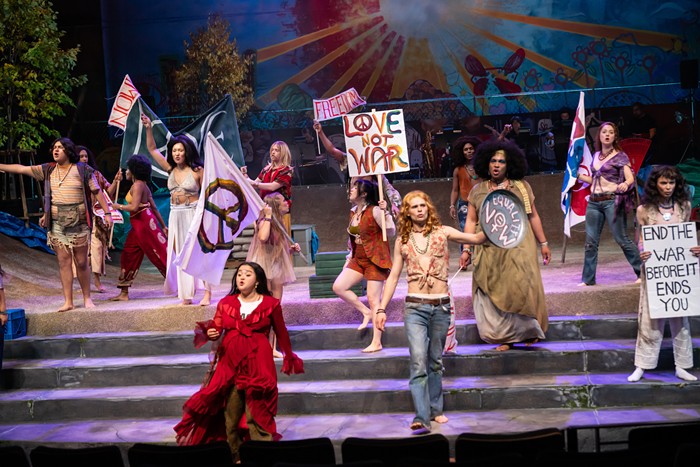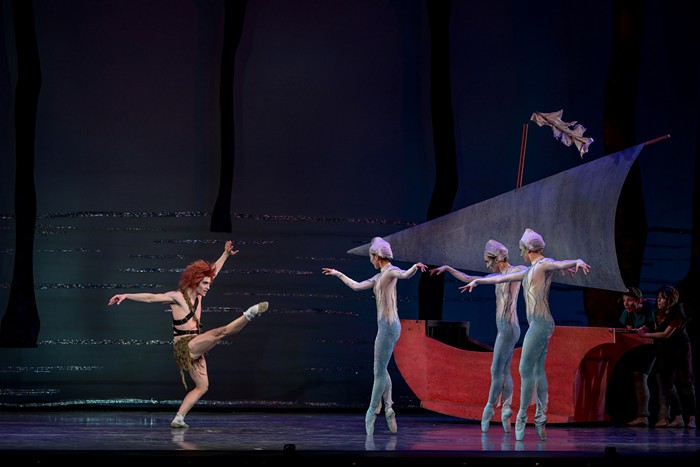Neil LaBute's Reasons to Be Pretty opens with a knockdown, dish-breaking brawl. It's not immediately clear why Stephanie (Nikki Weaver) and her live-in boyfriend, Greg (Casey McFeron), are having such an epic fight, but one thing's for sure: Stephanie is pissed. She's the one throwing chairs, swearing, and threatening to kill Greg's goldfish. Greg ineffectually tries to placate her, but Stephanie won't be calmed—Greg has hurt her, badly, and his inability or unwillingness to recognize that fact is making things even worse.
Relationships can rise and fall on a word, and in this case the word is "regular." Greg has described Stephanie's face as regular; realizing she can't be with a man who doesn't like her face, Stephanie moves out, and Greg is left to wonder why a word that meant so little to him was so hurtful to her.
Rounding out the script is the relationship between Greg's friend, Kent (John San Nicolas), and his wife, Carli (Kelly Tallent). As the almost cartoonishly misogynistic Kent develops an interest in another woman, Greg is caught in the middle. Greg's romantic troubles, alongside his crumbling friendship with Kent, force him to clarify some of his own beliefs: to decide what's ultimately worth being honest about.
It's hard to take LaBute's insights into the female psyche very seriously; he's written two largely unlikeable female leads, and the conflict between Greg and Stephanie reflects the vaguely insulting premise that all women really want is to be told they look pretty. (Stephanie's refusal to accept "I like your face" as a compliment comes across as needy and immature.)
But to fault Reasons to Be Pretty for its depiction of its female characters is to miss a crucial distinction. This isn't a play about women, it's a play about how men treat women. Greg's ultimate rejection of Kent—and the standard of misogyny he bears—marks the show's most significant character decision, as the "bros before ho's" mantra dissolves enough to allow Greg to prioritize loyalty to his female friends, too.
Under Gretchen Corbett's intelligent direction—which, after that opening fight scene, errs toward the understated—and featuring authentic, lived-in performances from a terrific cast, this co-production of Lucky Apple and CoHo Productions finds truth, resonance, and surprising humor in LaBute's script. There are frustrating elements, to be sure, but it's a deeply vital show.



















